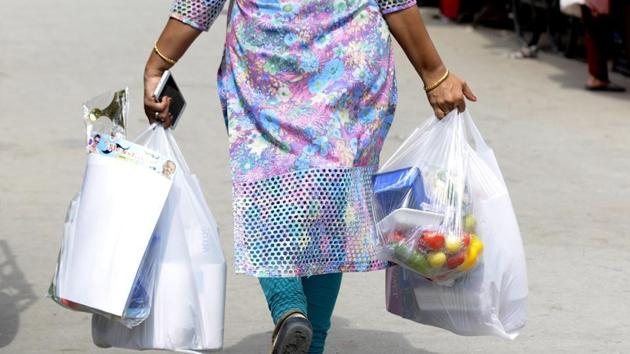Is a local study needed in Maharashtra to understand how plastic devastates the environment?
Plastic manufacturers, have moved the Bombay high court against the state-wide plastic ban, demanding an environment impact assessment study to find out how plastic affects environment.
Two weeks ago, Maharashtra issued a notification banning the manufacture and use of plastic bags, single use disposable items made of plastic and polystyrene foam – popularly called thermocol – cutlery, non-woven polypropylene bags, pouches, packaging and certain kinds of bottles. The notification lays down punitive measures for violation of the ban, including fines up Rs 25,000 and three months of jail for repeat offenders.

The ban, though welcomed by environmentalists, was criticised as being ill-conceived. The misgivings about the ban have been proven right, with the government already diluting some provisions of the notification. The government has decided not to ban on small bottles made of certain kinds of plastics. Also, the state has decided to give another two months to people for disposing of the banned items. This means that punitive action against violators will start only in June. There is also a demand for the withdrawal of a provision in the notification for refundable deposits for recyclable bottles.
Plastic manufacturers, who have moved the Bombay high court against the ban, have demanded an environment impact assessment (EIA) study to find out how plastic, and its alternatives, affects the environment. The All India Plastic Manufacturers Association (AIPMA) says that the study is imperative.
Environmentalists have laughed at the suggestion that we need another study to find out whether plastics are bad for the environment. “It is like contemplating whether smoking causes cancer,” says Nandikesh Sivalingam of environment organisation Greenpeace. “It is pretty apparent and clear (the environmental damage caused by plastic). It (the demand for the study) is a way to prevent progress in the issue,” says Sivalingam. “Once it is manufactured, it is difficult to ensure that 100% of it is recycled or properly disposed of.”
Plastic contamination is near-permanent and universal. A paper published in the journal Science Advances by a team consisting of industrial ecologist Dr Roland Geyer, from the University of California in Santa Barbara, calculated that the world has produced 8.3 billion tonnes of plastic. Of this, 6.3 billion tonnes, or nearly 80% of the total plastic production, is lying in our garbage dumps or in our natural environment, littering the seas and soil.
A study by Orb Media, which has been reported by newspapers, said that fibres, produced by plastic waste breaking down, were found in most tap water samples tested from across the world, including India. A recent study by the same organisation found the fibres in popular brands of bottled water. While the health impact of the fibres or micro pieces on human health is not known, plastic residues have been found in fish, sea birds and marine mammals. Plastic is already killing sea creatures. Last week, marine experts said that a 10-metre long whale that was found dead on the southern coast of Spain in February had died because kilos of plastic, swallowed by the animal accidently, had blocked its digestive system. Experts have said that turtles can ingest plastic bags, mistaking it for jellyfish which is a major constituent of its diet. Microplastics, created by the breaking down of larger pieces of plastic, resemble fish eggs and can be mistaken for food by other marine life.
Plastic manufacturers insist that careless disposal of plastic, and not its manufacture, is the problem. Hiten Bheda, president of AIPMA, says, “You have visible pollution from plastics. This is a result of littering and failure of municipal authorities to manage the waste.”
Bheda says that only an EIA will show the environment impact of products suggested as replacement for plastics. “There is nothing like zero impact. Paper bags have been suggested as an alternative to plastics, but you have to understand the environmental impact of every alternative.”
“Plastic is a good material, so use it advantageously. We are not in denial (that plastics degrades the environment, but a blanket ban will not work and will compromise a lot of initiatives like food safety,” adds Bheda.
Stay updated with all the Breaking News and Latest News from Mumbai. Click here for comprehensive coverage of top Cities including Bengaluru, Delhi, Hyderabad, and more across India along with Stay informed on the latest happenings in World News.
Stay updated with all the Breaking News and Latest News from Mumbai. Click here for comprehensive coverage of top Cities including Bengaluru, Delhi, Hyderabad, and more across India along with Stay informed on the latest happenings in World News.






